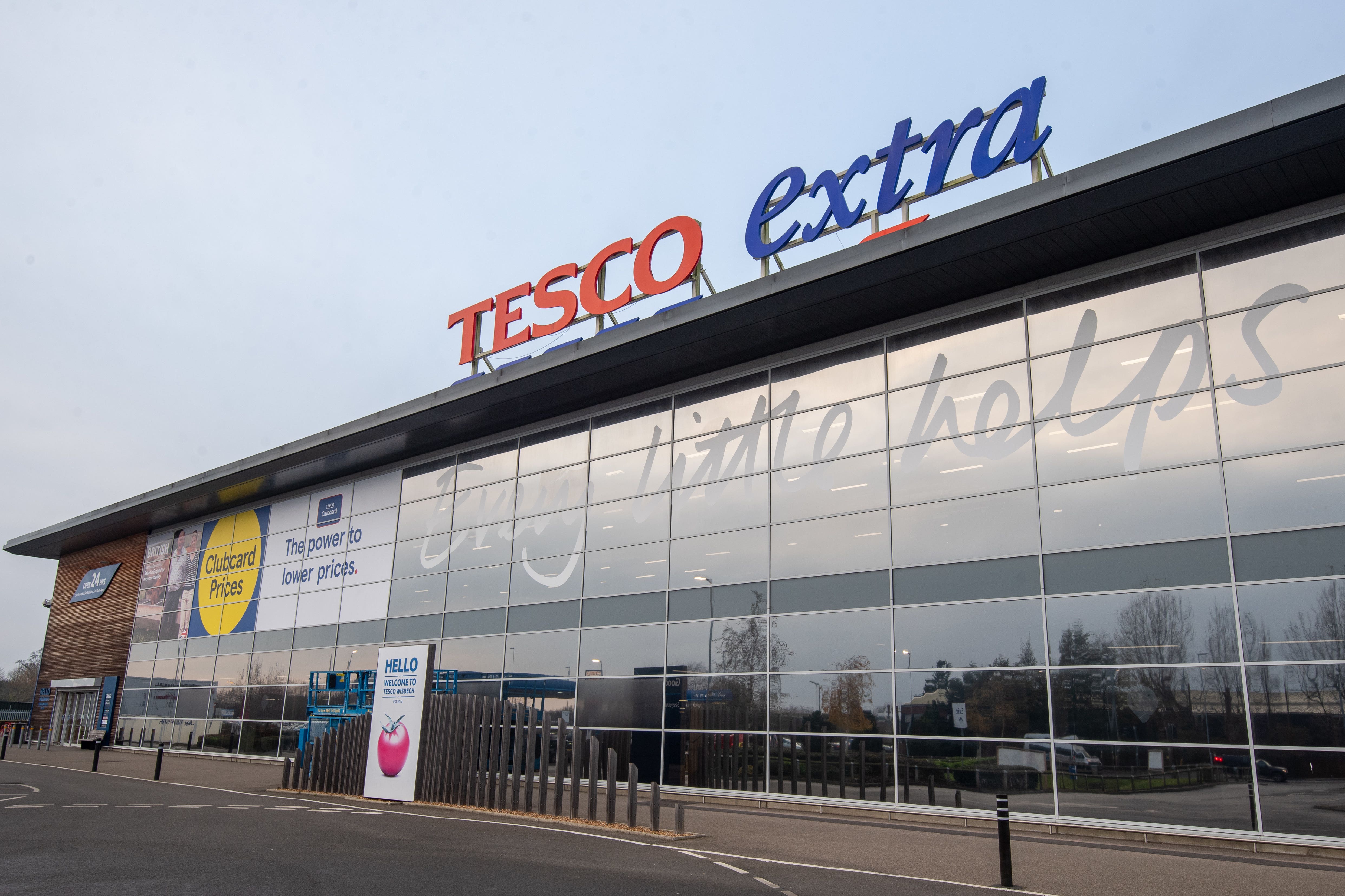Tesco profits tumble but City finds reasons to be cheerful
Britain’s biggest grocer found it heavy going amid a struggling economy that showed zero growth in February, writes James Moore


What a tangled web Tesco weaves. Britain’s biggest supermarket reported a slump in pre-tax profits, which fell by more than half to £1bn.
It also reported operating profits of £1.5bn, down about 40 per cent, and “adjusted” operating profits, which were down by only 7 per cent to £2.6bn. A note to the accounts says the adjusted figure excludes “adjusting” items; these add up to over £1bn and include things such as financing costs and “non-cash items”.
The City has bought into the “adjusted” number; the grocer’s performance was a tick or two above what analysts had expected and shares, which have been doing rather well of late, inched higher.
Tesco has a delicate balancing act to pull off. Its customers are increasingly hard-pressed and inclined to seek out bargains at Aldi and Lidl, which have been growing like giant kelp in a favourable patch of seawater. It has to keep its staff sweet in the midst of a labour shortage. And then there are its shareholders in the City. Despite the decline in profits, their dividends were held and they’re getting some additional TLC courtesy of the group’s share buyback programme.
These results nonetheless show a business under some pressure. Even if you’re willing to look at that “adjusted” number, Tesco is making less money.
Partly that’s down to higher costs, including wages, but it is also partly down to squeezed margins because of price-matching with competitors and the effect of inflation on what it sells, and for how much. It quoted an adjusted operating margin of 3.8 per cent for UK and Ireland, which is 57 basis points (0.57 per cent) lower year-on-year. Tesco sold more higher-margin, non-food items last year, so some of the changes are not explained by price pressure.
While sales grew 5.3 per cent, this represented a marked undershoot when compared to inflation. Tesco admitted that sales volumes declined, so it sold fewer items but at higher prices.
Investors ought to have grounds for concern about some of these numbers. The money for buybacks and dividends has to come from somewhere. Lower margins on fewer items sold inevitably mean lower profits unless it can grow market share (Tesco is treading water on that front.)
So why were the shares still ahead through much of the day? First, treading water represents a decent result in the super-competitive grocery sector.
Next, consider the other big financial news story of the day: Britain’s flatlining economy, which showed zero growth in February. Overall, the UK has been doing better than most forecasters were predicting last year. But it is still on the slow boat.
The International Monetary Fund might just as well have reheated the old “sick man of Europe” line from the 1970s when it issued its recent (grim) forecasts. The UK is lagging behind the world’s other big economies and that looks set to continue. Chancellor Jeremy Hunt was reduced to burbling about how he thinks the UK will beat its predictions; it takes more than boosterism to power an economy.
This isn’t a terribly happy situation for Tesco to be in given the UK is its biggest business area; profits are likely to be flat next year, by its own forecast.
The sluggish economy plays an important role in that. On the other hand, Tesco boasts considerable market and financial clout, and an impressive free cash flow. And while Aldi and Lidl are snapping at its heels, it is benefitting from the struggles of others, such as a flailing Morrisons.
During those grim 1970s, the UK also had low growth and high inflation – stagflation. AJ Bell’s Russ Mould points out that the stocks that did best in that were “defence stocks” such as consumer staples and (gold) miners. “Maybe the markets are looking back to that,” he suggests.






Join our commenting forum
Join thought-provoking conversations, follow other Independent readers and see their replies
Comments